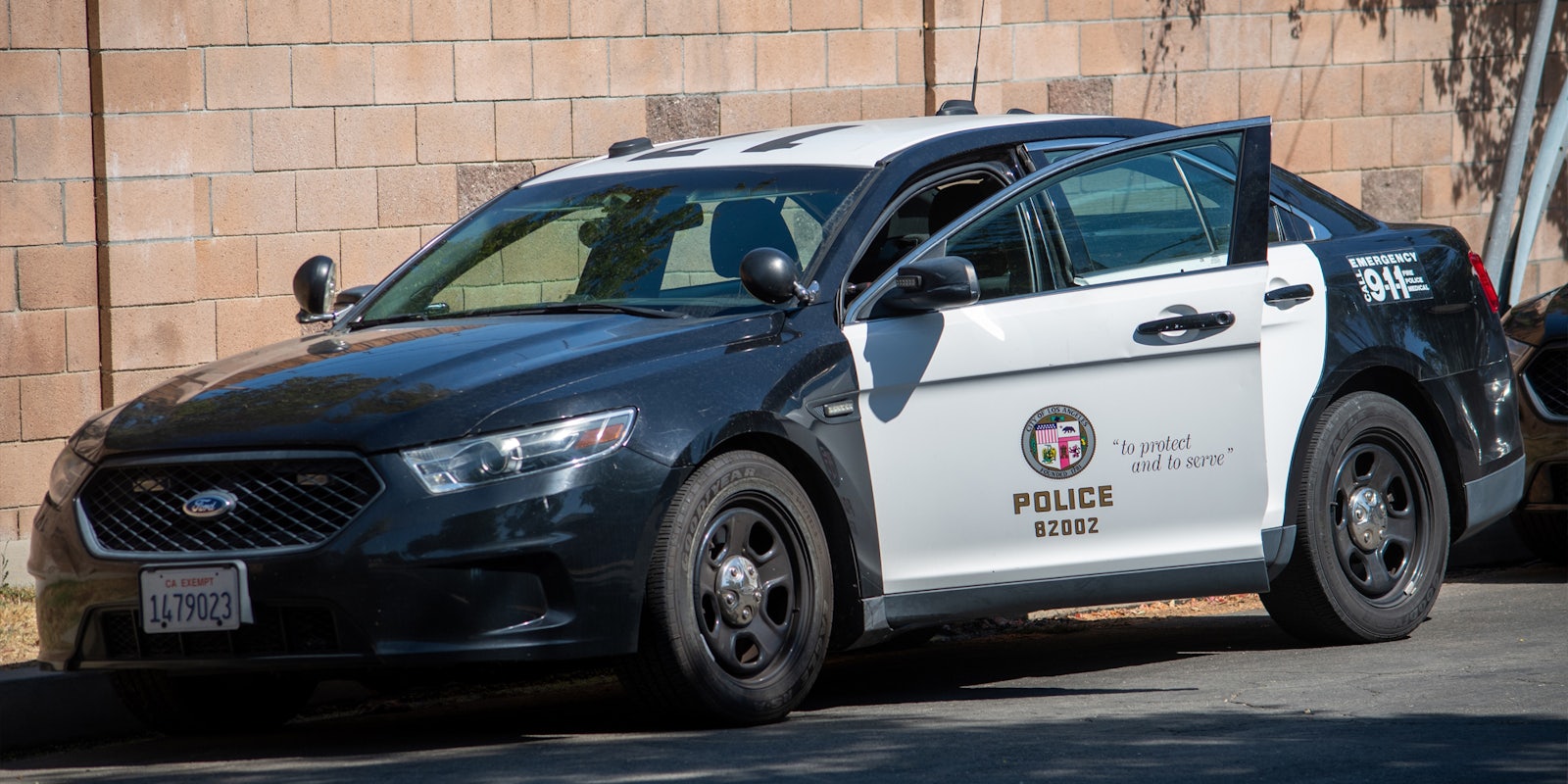Los Angeles is suing a journalist and an anti-police surveillance group for publishing the names and photos of undercover police officers—information they obtained through a public records request.
The lawsuit is the latest in a string of court efforts involving the city, the Los Angeles Police Department, and the Los Angeles Police Protective League (LAPPL)—the police union for LAPD—after the city of Los Angeles and the police department inadvertently released the names of over 300 undercover police officers in a public records response.
In a statement to the Daily Dot, the journalist, Ben Camacho, said the lawsuit is an example of the LAPPL using the city to “do its dirty work.”
“Attempting to claw back records that exist in the public domain and fabricating this whole mess is very telling of the minds behind both the city’s lawsuit and the LAPPL’s. The photos are out there, they need to accept that,” he said.
According to the lawsuit, Camacho, who writes for progressive outlet Knock LA, filed a public records request in October 2021 seeking an up-to-date roster of LAPD names, badge numbers, and other identifying information. Camacho also sought headshots for each officer given.
In January of last year, LAPD gave Camacho a roster of police officers but refused to provide photographs of officers. Camacho then filed an injunction against Los Angeles for not providing the photos in May 2022, and the two sides agreed to settle the dispute.
“The City agreed to provide pictures of all full-time, active duty, sworn officers as of July 3, 2022, that were available in LAPD’s system, except for images of officers working in an undercover capacity,” the lawsuit said. “Camacho’s counsel agreed that any production of photographs or images would expressly exclude images of officers working in an undercover capacity.”
Camacho received a flash drive featuring images of all active duty officers in September 2022 and once again was told by the city that “images of officers working in an undercover capacity as of the time the pictures were downloaded (end of July 2022) are not included.”
However, the flash drive included the photos of over 300 undercover LAPD officers, which the city did not realize until six months later, in March of this year. The names and photos of all 9,000 officers, information Camacho received from the city itself, were published to a database created by the anti-police spying organization Stop LAPD Spying Coalition.
The 300 undercover officers launched a lawsuit against the city and LAPD, calling the disclosure “catastrophic negligence” through their lawyer.
Now, the city is claiming that because it inadvertently provided the names and photos of undercover officers, the photos and names are not bound by the same rules as intentionally released information and are demanding the takedown and return of the undercover officer’s information.
“Defendants have been and now are in wrongful possession of the flash drive and copies of the exempt photographs in violation of the City’s right to immediate possession and, following the City’s demand for return of said property, Defendants have wrongfully retained said property and failed to return said property to the City,” the lawsuit said.
Stop LAPD Spying Coalition said it “has a right to publish public records” in a series of tweets.
“This is an attack on the public’s ability to request, analyze, and publish public records,” the group said, adding it was “a new low.”



